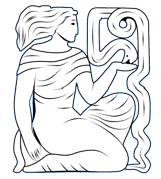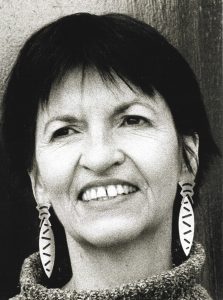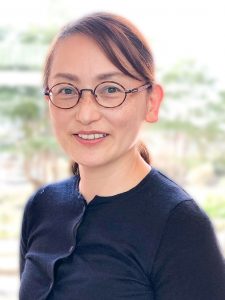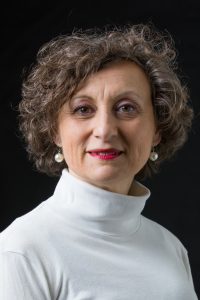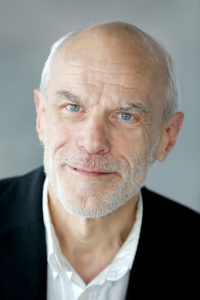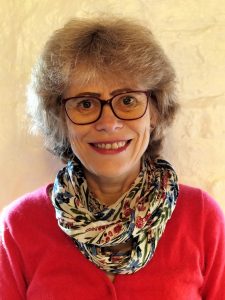Author Biographies: Volume 10 (1) 2022
Biographies for Sue Hawkins, Amanda Gwinnup and Janet Hargreaves, who are part of the editorial board, can be found here.
Teresa Doherty
The Voice of Nursing – 30 years of UK Nurses’ Oral Histories Historical Nursing Journals Digitised – new in Autumn 2022 Email: teresa.doherty@rcn.org.uk |
Teresa Doherty has been working with heritage collections since 1990. She is Joint Head of the Royal College of Nursing Library and Archive Service, and the RCN Professional Lead for History of Nursing. Previously she was Head of Special Collections, The Women’s Library and has a continuing interest in women’s history. Teresa has led a number of initiatives to make collections more accessible and increase engagement with researchers and the wider public.
For more information about the RCN Library and Archive Service please go to https://www.rcn.org.uk/library/
|
Dr Liesbeth Hesselink DJARISAH, an outstanding Javanese midwife (1880-1971) Email: eq.hesselink@hetnet.nl |
After her graduation as a historian, Liesbeth Hesselink worked as a teacher in secondary schools, as a civil servant, first for the Ministry of Education and later for the municipality of Leiden. She also represented the Dutch Labour Party as a member of the board of Councillors for the municipality of Leiden for eight years. After her retirement, she attained her doctorate on doctors and midwives in the Dutch East-Indies in 2009 with her thesis titled Genezers op de koloniale markt, inheemse dokters en vroedvrouwen in Nederlands Oost-Indië 1850-1915, which was published by Amsterdam University Press in 2009. A translation in English was published a year later: Healers on the colonial market; Native doctors and midwives in the Dutch East Indies, Leiden: KITLV Press, 2011. Liesbeth has an extensive list of published work, most of which focuses on healthcare in the colonial Dutch East-Indies. Liesbeth is currently writing a biography of the first female Indonesian physician, Marie Thomas, which has been delayed by the disruptions caused by Covid. |
Dr Yuko Kawakami
Public health nurse education in wartime Japan Email: kawakami.yuko@kameda.ac.jp |
Yuko Kawakami is an Associate Professor in the Faculty of Nursing at Kameda University of Health Sciences, Japan. Her research published in Japanese has focused on public health nursing and administration during the Second World War period in Japan, including “Formation and Evolution of Public Health Nursing in Prewar and Wartime Japan” (2013). Her research interests include health and welfare activities by Japanese agricultural cooperatives and historical sociological research of public health nursing in rural Japan. |
Anna la Torre ‘Vast science and difficult art’. The nurse in medical journals under fascism in Italy Email: eahnursing@gamil.com |
I became a Registered Nurse in 1994 and gained an MSc in Nursing in 2008 and an MA in History in 2015, with a specialization in the history of Christianity. Currently I am studying for PhD in History at Universitat Autonoma de Barcelona, Spain, with a research project on Professional Nurses and Fascism in Italy. I am currently a visiting lecturer at the Faculty of Nursing, University of Milan. Since 2011, I have been a member of the European Association for the History of Nursing (EAHN), and served as president of the association from 2020 to 2022.
|
Luc De Munck The British influence on the first university nursing school in Belgium Email: luc.demunck@kuleuven.be |
Luc De Munck studied political sciences and communication sciences at the University of Leuven, Belgium. He worked for 30 years as archivist of the Belgian Red Cross. He published different books and many articles on the history of the Red Cross and curated exhibitions on the activities of the Belgian Red Cross during the First and the Second World War. After his retirement, he studied history at the University of Leuven. His master’s thesis on Belgian nurses during the First World War was in 2018 awarded by the Flemish Government with the 100 Years Great War-prize for the best thesis on the First World War and was published by Amsterdam University Press. As researcher at the Cultural History since 1750 Research Group of the University of Leuven, he is preparing a PhD in history on the professional identities of catholic nurses in Belgium between 1919 and 1974. As associated researcher for a project on transnational, medical and humanitarian actions in Europe between 1870 and 1950, coordinated by the Spanish National Research Council at the University of Barcelona, he is doing research on the history of nursing in Belgium. He is also founder and president of the Belgian Association for the History of Nursing. |
Katherine Roberts An Ambiguous Presence: Wartime Constructions of the Body of the Nurse |
Katherine Roberts is a third year PhD student in the Division of Nursing, Midwifery and Social Work at the University of Manchester. She has a Masters’ degree in History from King’s College London and her research interests focus on the intersection of nursing and emotions history. Her doctoral research is on the emotional experience of Queen Alexandra’s Imperial Military Nursing Service Sisters during the Second World War, with a focus on the extensive emotional labour required by both their nursing work and their wider emotional community. Her supervisory team consists of Jane Brooks, Ana Carden-Coyne and Laura Green.
|
Dr Sarah Rogers
From Living in The Lückes Home, to Studying Eva Lückes – A Forty Year Journey Email: sarah24rogers@gmail.com Twitter: @maidstonetyphoidlady |
Sarah trained as a Registered General Nurse at The London Hospital, Whitechapel and as a District Nurse in Tower Hamlets, London. Later she worked as a District Nursing Sister in London’s East End and Kent, and as a Macmillan Funded Community Palliative Care sister in Sussex. Following ill-health retirement after twenty-three years’ service, she retrained as a genealogist and completed an MLitt in Family and Local History at the University of Dundee. During her MLitt research into the nurses who worked in the Maidstone Typhoid Epidemic Sarah became fascinated with Eva Lückes, Matron of The London Hospital (1880-1919), an influential nursing leader and a friend of Florence Nightingale. As part of doctoral research and using her genealogy skills Sarah traced nearly 500 matrons who trained under Lückes at The London Hospital. This enabled Sarah to recently complete her PhD which examined Lückes as a Matron Maker and Influencer of Nursing Leaders.
Sarah has been an active member of the Royal College of Nursing’s History of Nursing Forum for many years where she became keenly interested in the history of the profession. She is a committee member for the UK Association of the History of Nursing. Sarah was actively involved in the Royal London Hospital’s League of Nurses Oral History Project and is a co-author of the resulting book: Nursing Through the Years, Care and Compassion at The Royal London Hospital which was published in 2018. She has just started to write Lückes’s biography. Sarah is currently working with colleagues on the RCN’s History of Nursing WIKI project – Nurses in Red – an online project to document nursing history. |
Prof Alannah Tomkins “I helpt to nurse”: unpaid care work by Georgian spinsters 1780-1820 Email: a.e.tomkins@keele.ac.uk |
Alannah Tomkins is Professor of Social History at Keele University who has been working in the period of the ‘long’ eighteenth century for over twenty-five years. Her research has focussed on the history of the English poor laws and the social history of medicine, her most recent book being Medical Misadventure in an Age of Professionalisation, c.1780-1890 (2017). She was the Principal Investigator on the AHRC-funded project ‘Small bills and petty finance: co-creating the history of the Old Poor Law’ 2018-21. Her forthcoming work is related to the history of nursing before 1820 with the intention to reassess the capabilities and achievements of pre-reform nurses.
|
Sharon Whiting Manchester’s Early Critical Care Nurses – an oral history project Email: sharon.whiting@postgrad.manchester.ac.uk; Twitter: @shazzerfish |
Sharon Whiting Is a British registered nurse. She holds post-registration critical care nursing qualifications (ENB No.100), BSc (Hons) and MSc, both in nursing awarded by the University of Manchester, and a PgCert from the University of Bolton. Semi-retired, she works part-time as a Practice Educator in critical care, teaches at the Greater Manchester Critical Care Skills Institute and is employed by Manchester University NHS Foundation Trust (MFT) based in critical care at North Manchester General Hospital. She holds Recognised Tutor Status with Manchester Metropolitan University.
Sharon is also a part-time doctoral student in the fifth-year of study at the University of Manchester, Faculty of Biology, Medicine and Health. A thirty-year plus career as a critical care nurse predominantly at one hospital has influenced Sharon’s area of research and chosen methodology. |
Dr Stuart Wildman
The English Workhouse at Night, 1834-1914 Email: s.wildman@bham.ac.uk |
Stuart Wildman is an Honorary Research Fellow at the University of Birmingham. His research focuses on the history of health care, in particular hospital and home nursing, in the nineteenth and twentieth centuries. He is currently Chair of the History of Nursing forum of the Royal College of Nursing.
|
